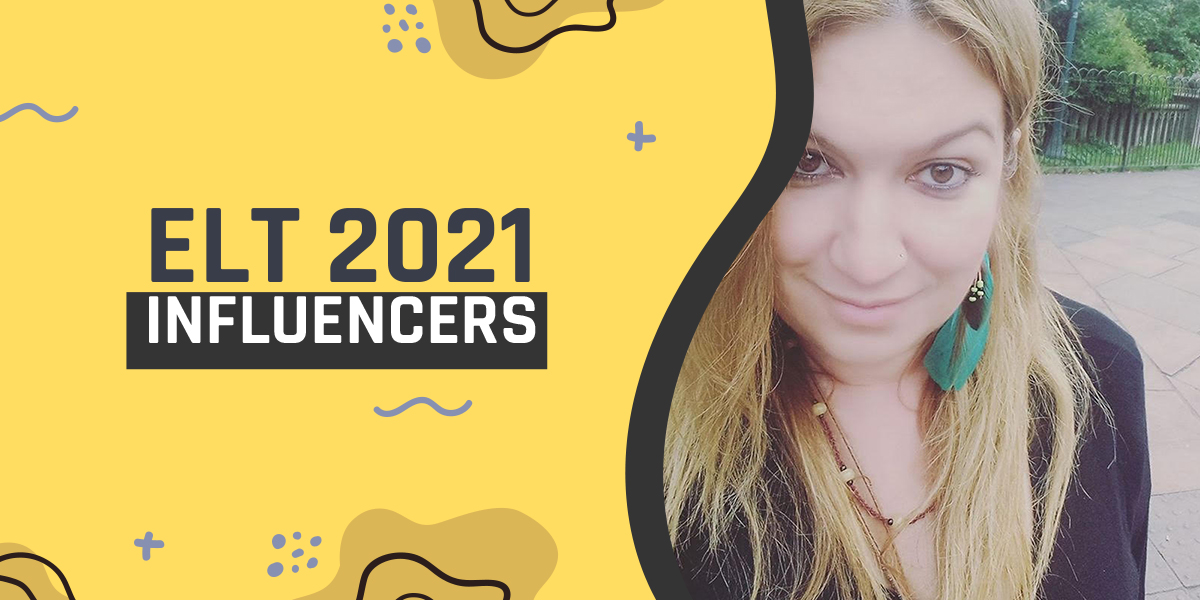Maria is a school owner, teacher, teacher trainer and researcher. She has a BA in Philosophy, Cambridge DELTA, an MA in TESOL, St Michael’s College, Vermont, and has studied for a PhD in Applied Linguistics at Lancaster University, UK. She is now completing her Doctorate degree in Athens. She held an ESRC research award. She has more than twenty-five years’ experience in teaching, teacher training and syllabus design in Greece, the UK and the US. She is a language school owner in Athens, promoting alternative and experiential models of teaching. She is an international trainer and academic consultant for publishing companies, private schools and Ministries of Education.
What are the current trends in English language teaching?
The current trends in the world or the current trends in Greece? These are two totally differently things! Looking at the big picture, I’d say that there’s a great push towards innovation but this has taken (not?) surprisingly two distinct yet parallel turns: technological innovation hand in hand with humanistic innovation. So what I see is a lot of storytelling, Project Based Learning, CLIL, teaching outside the 4 walls, experiential learning along with web-tools, gamification, remote learning and BYOD (Bring Your Own Device). As for our context, the current trend hasn’t changed much: grammar-based syllabi and exam-prep methodology. I’m hoping for a brighter, more learner-centered future.
What are the current trends in the development of technology in e-learning?
We’ve been using technology as an integral part of our lesson for 7-8 years now. In fact, we tell students that they have to bring their mobile or tablet in class, instead of banning it. I’m definitely not a tech expert (like my colleague Mike Kenteris) but being an educator, I think our classrooms should be reflecting the world, they are essentially tiny replicas of the world out there. So a tech-loaded world cannot truly be reflected in tech-free classrooms. Just that as educators, we need to use technology and e-learning for the benefit of our learners: How can it inspire them? How can we help them transform from passive consumers of screen time to active co-constructors of the tech-game?
What are the new trends in teaching?
Learner-centered and even learner-led approaches with fewer ready-made materials and more learner emergent topics. Teaching anything from anything! Exploring learners’ own questions should and will be what guides our syllabi. Look at a bridge: let’s see what the bridge can teach us! From one bridge, we can talk about Physics, Geography, History, English, Empathy, Tolerance, Philosophy, everything… From one bridge we can talk about the world outside of us and inside of us. And I have the feeling that this is the future of education: an interdisciplinary approach where a bridge, a cloud, a nut or running water can spark a whole exploration of the world! And this is what we do in our Deeper Learning program.
What are the current issues in language education?
Standardized testing. Too much testing. Too many tests.
Poor quality materials. Coursebooks that are really glorified grammar books.
Teachers’ role: who do we want to be? How much voice and choice do we give to our students?
Teachers’ education and development: do teachers want to change and get better? Attending seminars and talks is not enough if you stick to who you were before doing them. Are we open to change? Are we agents of change? Teachers blame it on the parents but we are the experts, we need to make choices and educate parents to accept them. I see a lot of outdated approaches and it makes me sad. Being an optimist by nature though, I can also see that differentiating your self and your school from your context, opting for what is scientifically and pedagogically sound pays off: happy learners, happy parents and happy teachers!•
